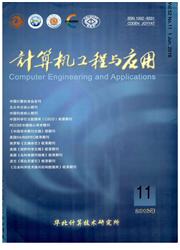

 中文摘要:
中文摘要:
基于Mark Fels和Peter J.Olver的活动标架理论,给出了用经典算法和改进的递归算法来构造活动标架和微分不变量的代数构造算法,并以一个李变换群为例演示了两种方法的构造过程。结果证明递归构造方法与经典的Maurer-Cartan方法相比较,不仅能够系统地应用于任意的变换群作用,也不要求一个slice的存在,且对于多参数的变换群来说,其递归构造方式使得相应的活动标架和微分不变量的构造过程更便捷,也容易实现。重要的是,相应的Maurer-Cartan形也被一步步地构造获得。所获得结果不仅是新的,且为微分不变量在签名曲线中的应用研究提供了基础理论支撑。
 英文摘要:
英文摘要:
This paper presents a classical algorithm and an improved recursive method to construct moving frames and differential invariants based on the moving frame theory developed by Peter J. Olver and Mark Fels. It takes an example to demonstrate the constructive processes of two methods respectively for a Lie transformation group. The results indicate that the recursive algorithm has more advantages than the classical Maurer-Cartan approach, which can be applied to arbitrary group actions systematically. More importantly, it does not need the existing of a slice. Especially for multi-parameter transformation group, this recursive method is more convenient while constructing the corresponding moving frames and differential invariants. It is important that the corresponding Maurer-Cartan forms can be obtained as by-products step by step. The results presented here not only are new, but also provide a fundamental theory tool to the application study of signature curve for differential invariants.
 同期刊论文项目
同期刊论文项目
 同项目期刊论文
同项目期刊论文
 期刊信息
期刊信息
